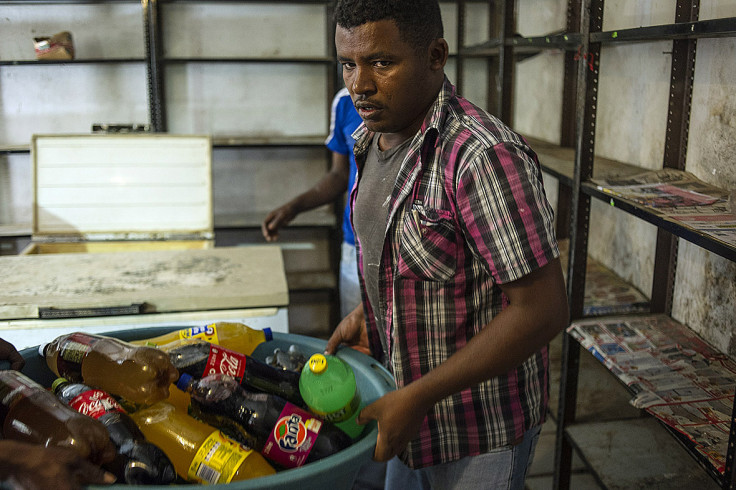South Africa xenophobic attacks: Hundreds flee violence and looting in Grahamstown

Hundreds of people have fled their homes in South Africa's Grahamstown, Eastern Cape after a surge of xenophobic attacks which started earlier in October. About 500 people have been displaced following repeated attacks on shops and homes owned by foreigners; Zimbabweans, Somalis, Nigerians and Pakistanis, according to local media reports. It is believed at least 300 shops have been looted.
A statement by the social Unemployed Peoples' Movement (UPM), which has a branch in Grahamstown and is working to quell violence, said that Muslim foreigners were initially the main target of the attacks, which later spread to all foreigners in the area.
It is believed violence erupted after a "man with a beard" was accused of having committed six alleged "muti" murders, with five of the victims being women. A Muti murder is the ritual killing of victims for their body parts which are then used in traditional medicine.
The police denied there were serial killers in Grahamstown and said in a statement: "There is no link between foreign nationals in Grahamstown and the deaths being investigated". However, the statement did not halt the violence.
Foreigners in Grahamstown flee after being targeted by locals who accussed them of being responsible for the deaths of 6 locals
— Dikeledi isnt a LADY (@TheRealDikeledi) October 27, 2015The latest unrest echoes xenophobic violence which occurred in Durban in April, when South Africans targeted foreigners accusing them of stealing jobs and opportunities. After days of unrest, which resulted in some deaths and prompted thousands to flee their homes and find shelter in makeshift camps, South Africa deployed its army to help police curb the violence. The deployment followed the fatal stabbing of immigrant Emmanuel Sithole. Pictures of him pleading for his life before being killed were published by local newspapers, provoking anger.
Violence in Grahamstown was sparked off after dozens of people were arrested in connection with xenophobic attacks against Zimbabweans in the Limpopo province, earlier in October.
The resurgence of xenophobic violence came days after President Jacob Zuma announced a 0% increase in tuition fees for 2016 following days of unrest across the country as thousands of students took part in demonstrations- some of which turned violent - calling for free education.
© Copyright IBTimes 2025. All rights reserved.





















